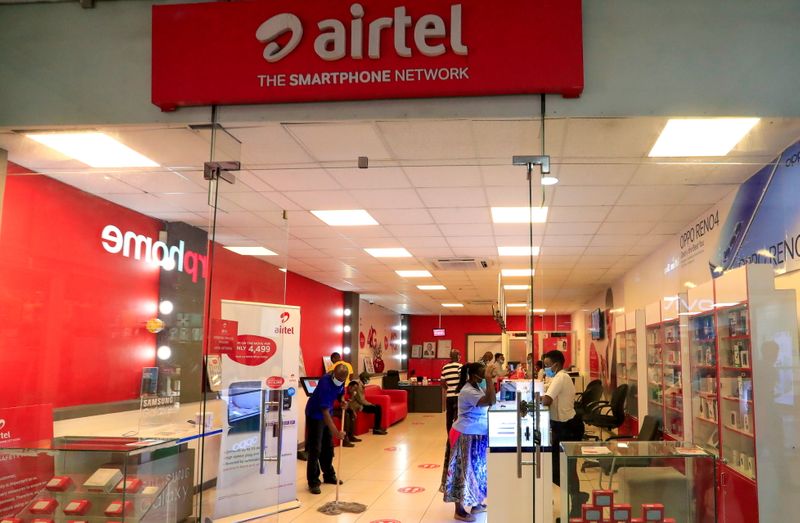NAIROBI (Reuters) – Airtel Africa expects a boost from growing demand for mobile broadband and phone-based financial services, its chief executive said on Thursday, after posting rapid growth in first-half earnings.
The telecoms firm, which operates in 14 African markets including Nigeria and Kenya, said revenue grew 27.6% on a constant currency basis in the six months to the end of September.
Earnings before interest, taxation and depreciation, a key earnings measure for telecom operators, jumped 38.5% in the same period.
The growth trajectory will continue, CEO Segun Ogunsanya told Reuters after the results were released, driven by demand from a fifth of Africa’s population that still has no access to mobile broadband.
“Most of these folks are mobile first, mobile only generation. They require mobile broadband to participate fully in the digital world,” he said, referring to the continent’s generally youthful population.
The provision of fourth generation (4G) internet network in its markets has been a key driver of revenue growth, Ogunsanya said.
Mobile financial services, including cash transfers and payments, has also been fuelling growth.
“More than half of adults in Africa don’t have bank accounts. That shows the scope available in driving the mobile money business,” he said.
In Nigeria, which is Airtel’s biggest market, the firm has applied for a licence to offer financial services, from the central bank.
“It is one of our key objectives, so it is especially important for us,” Ogunsanya said, adding said that they were in “constant dialogue” with the regulator.
Nigeria has been leaning towards a bank-led model for introducing mobile financial services, as opposed to countries like Kenya, where telecom operators like Safaricom lead the way, African telecom executives say.
Airtel plans to cut its net greenhouse gas emissions to zero before 2050, Ogunsanya said, and they will be requiring their suppliers, including cellular towers, to comply with the plan.
“We are convinced it is the right thing to do. It is the best thing to do for the environment,” he said.
(Reporting by Duncan Miriri; Editing by Kirsten Donovan)























